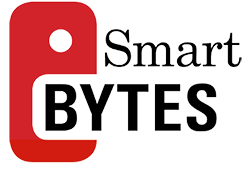Finding the Right Camp for A First-Timer
April 15, 2024

By Lydia H. Soifer, Ph.D, with Eve Kessler, Esq.
To perform daily tasks successfully, good executive function skills are necessary. Whatever the assignment your child is faced with (homework, long-term projects, studying for exams, etc.), having a “plan for the plan” is essential. Simply put, before beginning a task, it’s important to create an organizational structure that takes into consideration all contingencies.
Think, for instance, how you plan a dinner party. You begin by making a list of the food you’ll need, decide where you’ll buy it, when you’ll pick it up, and who will do what to help prepare, serve, and clean up after the party. Similarly, with your child’s homework, she may need to decide where to work, what tools she’ll require, how long it will likely take, etc. Next, she’ll need to get specific, moving through the process in an orderly manner. If she’s writing an English essay, she may begin by outlining or using a graphic organizer, ‘mapping’ the main idea and details, and thinking through the thesis and topic sentence before beginning to actually write the paper.
Language is at the heart of executive function and self-regulation. If your child’s language skills are compromised—and most learning disabilities are language-based—learning and using executive function skills effectively will be challenging. From planning a sentence to answering open-ended questions to telling a story with a beginning, middle and end, effective communication, schoolwork, and social interactions necessitate good executive functions and fluid and robust language skills. Because all school is language-based, if your child’s language is not automatic, getting through the day in a language-based environment (which all school is) will be exhausting if your child’s language is not automatic.
There are no quick fixes for poor executive functions. Improving them is a process that takes time. There are no strategies that are applicable to everyone. Every strategy must be individualized and tailored specifically to fit each child’s needs. Below are some ideas to experiment with:
This blog is based on the presentation, Executive Function and Working Memory: A Primer for Parents. Lydia Soifer is the Director of the Soifer Center for Learning and Child Development, an Assistant Clinical Professor of Pediatrics at Albert Einstein College of Medicine, and a member of Smart Kids’ Professional Advisory Board. Eve Kessler, a former criminal appellate lawyer is co-founder of SPED*NET Wilton, Special Education Network of Wilton (CT), and a Contributing Editor of Smart Kids.